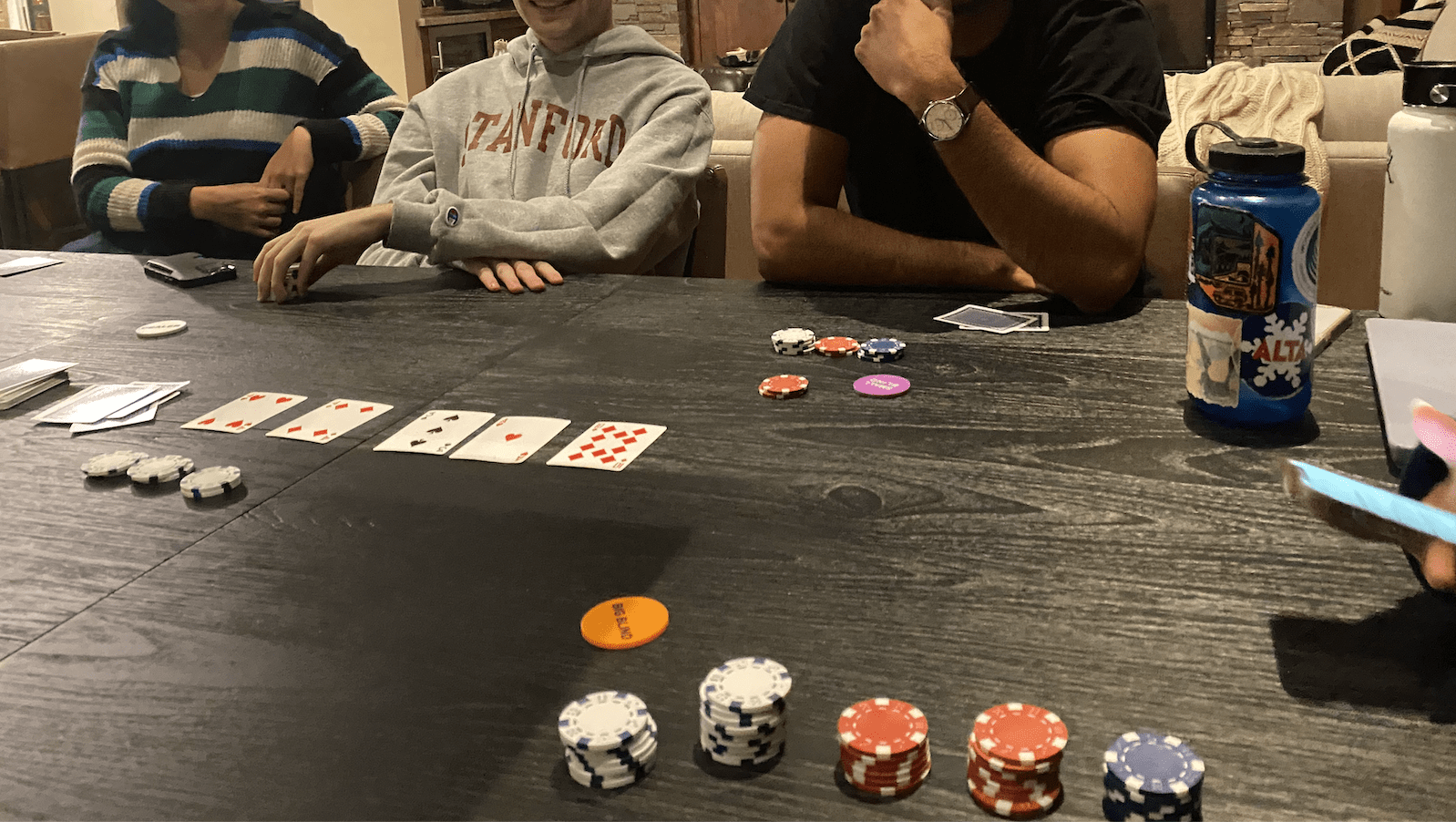I played poker for the first time this week. My first reaction was to be intimidated because everyone I was playing with seemed to know what they were doing (or later I realized, they pretended to). So today, I will attempt to share my reflections on poker and its inherent dangers compared to other chance-based games.
The first thing that stuck out to me from poker was that it was a mental game as much as it was a social one. I could have ‘learned’ the rules by pulling up the hand rankings visual on Google, but it was about how you actually interacted with the other players in the table that made the difference. There was an underlying psychological warfare going on, added on top of a ever-present element of chance combined with bluffing that keeps you so hooked I even started to look track of time and it was my first time playing.

All of these elements are initially why poker is a chance-game that is difficult to resist. The constant quest for that exhilarating rush of victory, the desire to outwit opponents, and the compulsion to chase losses can easily consume one’s thoughts and actions. While games of chance and probability are no uncommon, poker is the few that is actually addictive and after playing it makes sense why. Unlike games such as roulette or slot machines, where luck alone determines the outcome, poker requires a level of skill and strategic thinking. There are so many dynamics involved, given that at every turn you can be checking, calling, raising the bet, folding. And in parallel you also need to be running mental calculations on what your other opponents could have based on chance AND their personality. Hence, there is an added aesthetic of challenge rather than just luck alone by pushing a button on the slot machine.
Moreover, there is the aesthetic of discovery that happens when the dynamic of allowing some players to show their cards by putting a chip forward is what makes the game addictive. For instance, the only way I could still be “in the game” to see the next set of cards, I needed to match the bet on the table or raise it. Hence, the “curiosity killed the cat” behavior comes in and before you know it you have too much skin in the game to back out. As a player, you have agency, and you sometimes believe that the randomness of the cards will somehow be in your favor is you are smart enough, especially because you can lie about what you have and you aren’t forced to reveal your cards at the end. Which means you can have nothing and get away with it. Finally, since the mechanism of the game are the poker chips themselves, and they translate to money, it means that the core mechanism of the game integrates the betting of money. When you put a chip forward, you are also putting forward X of your own dollars to make the bet, which intensifies the need to ‘win the money back’. And how can you do that? Only by keep playing!
As a person who luckily is not addicted to poker (but can see where it can lead), I cannot stress enough the importance of approaching this game with caution and awareness. While the thrill of the game can be exhilarating, it is crucial to recognize the potential risks of addiction that come with it. With that said, I can definitely say I will play it again!



